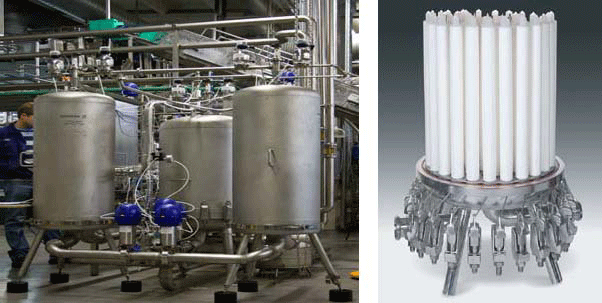Miscellaneous
Today, the complex and wide food distribution chain represents major challenges for the cereal industry while biotechnology research thrives to counteract global food security issues and, at the same time, react to consumer demands.
Miscellaneous
“Tiles? We haven’t used those in our production areas for a long time!“ – this is heard time and again when discussing floor coverings in beverage or food productions areas. Many owners and principals are poorly informed about floor coverings. Often the floors do not withstand the daily loads of an industrial production: these are above all driving loads created by pallet jacks, lifting carts and forklifts, usually in connection with chemical loads from product acids or cleaning caustic solutions. The European Hygienic Engineering & Design Group (EHEDG) in cooperation with Argelith have compiled current recommendations on flooring for hygienic areas. Among other things, the modern hexagon tile floor was specified as a possible “best practice” solution and differentiated clearly from conventional tile floors.
Miscellaneous
The requirements set out by Carlsberg for migration to a new process control system were clear and deliverable. The brief for the new automation solution at the Danish brewery in Fredericia was quite simple: make the complex production processes more transparent and safer, considerably improve user-friendliness and, naturally, implement it as quickly as possible – with a minimum amount of production downtime.
Miscellaneous
A process control system has been supporting the brewing process at the Bitburger Brauerei for around 30 years already. The automation infrastructure is continuously upgraded. State-of-the-art innovation steps and the conversion from a centralized to a decentralized structure make sure that ancillary processes are also integrated and the focus is firmly on increasing efficiency. This is to be boosted further by upgrading the process control system.
Miscellaneous
The Brewers of Europe welcomes a new report, adopted yesterday evening by the European Economic and Social Committee (EESC), which recognises the potential of the beer sector to generate jobs and growth and calls on EU policymakers and Member States to back the sector.
Miscellaneous
Some time in the late 1970s, long before the fall of communism and the rise of globalisation, we at BRAUWELT felt that profound change was underfoot in the brewing industry. Technological progress had led to the automation of brewing and the proliferation of packaging. Various improvements and innovations, which helped increase scale economies and allowed for greater efficiencies, were well documented in the weekly issues of BRAUWELT, but were unavailable to brewers who did not speak German.
Miscellaneous
No two beers are alike – and we are not talking about a specific beer type or about beer from a specific brewery. It’s only a matter of the container and the way it is transferred from container to glass. Beer bottles and cans are, indeed, very widely used and are eminently suitable for beer enjoyment at home. However, the true beer lover will always prefer a particular beer: Fresh from the tap.
Miscellaneous
At the drinktec trade show in Munich, Germany, Alfa Laval and Sartorius Stedim Biotech announced an extension of their cooperation regarding the distribution of membrane filters for cold sterilization of beer.
Miscellaneous
As a global manufacturer and marketer of ingredients and ingredient systems, Döhler has secured its leading position in flavours for beverages and food through the 100% takeover of the Polish Aromes Group. Alongside its core competence in the field of flavours, Aromes also provides its customers with beverage bases, emulsions, colours and compounds. In addition to Aromes’s production site, which is located near Warsaw (Grodzisk Mazowiecki), the company also has two sales locations in Ukraine and the Baltics. As a renowned partner for the food and beverage industry, Aromes has many years of experience in the production of premium flavours and extracts and in the application of baked goods, confectionery and beverages, as well as detailed knowledge of the Eastern European market and its consumers. This has allowed Aromes to develop a product portfolio that is tailored especially to local taste preferences. In addition to premium extracts and flavours for beverages, including many flavour specialities in regionally significant flavours, Aromes also offers a wide-ranging flavour portfolio for the baked goods and confectionery industry. This final strategic part of the portfolio makes Döhler the ideal partner for the Eastern European food and beverage industry.
Miscellaneous
Simulation of the brewing process offers an effective way to optimise the entire production system, from the brewhouse through to storage of finished goods. Different planning strategies are analysed and then optimized without any danger of disrupting daily operations. This article provides an introduction on how simulation technology is being applied to the brewing industry.
Miscellaneous
Environmental awareness is important in the brewing sector, both for ensuring the availability of high quality resources and to meet consumers’ expectations on environmental aspects. Minimizing energy and water consumption and related CO2-emissions is one of the routes to enhance sustainability in the brewing sector. To determine what energy and water efficiencies breweries worldwide achieve, the fourth energy benchmark 2012 and second water benchmark 2012 have been performed; these are based on data from 2011. From the results the new best practice on energy and water efficiency has been established.




